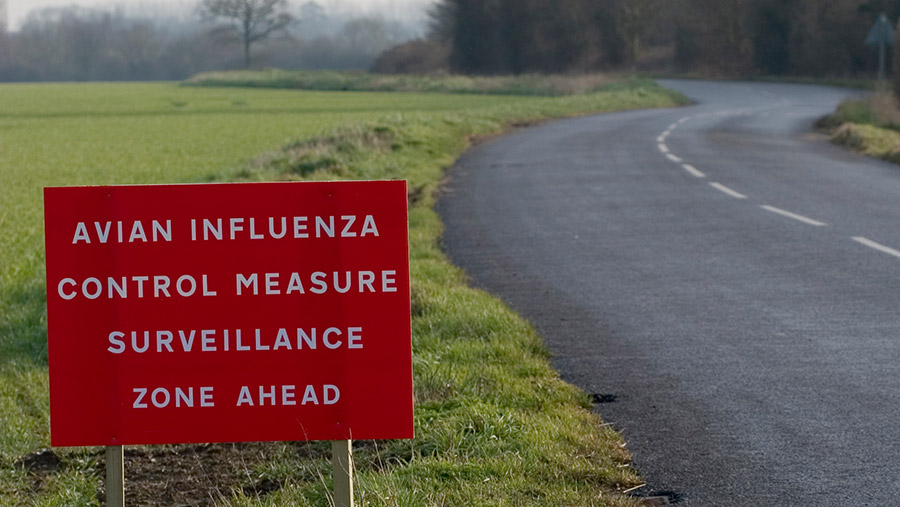Vigilance call as avian flu again reaches Northern Ireland
 © Paul Hebditch/Adobe Stock
© Paul Hebditch/Adobe Stock Poultrykeepers in Northern Ireland have been warned to increase vigilance after avian influenza was confirmed in the province for the first time since early December.
The Department of Agriculture, Environment and Rural Affairs (Daera) announced the new case of highly pathogenic avian influenza (H5N1) in a small, mixed species, backyard flock in Enniskillen, County Fermanagh. The previous case in NI was on 8 December, near Belfast.
NI chief vet Robert Huey said the latest outbreak served as a timely reminder that bird flu was still present in the environment.
“We cannot afford to get complacent. This strain will use any gaps in biosecurity to gain access to a flock,” Mr Huey said.
See also: Biosecurity needs revising as second avian flu wave threatens
Daera farm minister Edwin Poots backed the chief vet and called on all birdkeepers, particularly those with small backyard flocks, to review their biosecurity practices.
“Excellent biosecurity remains the most effective defence,” said Mr Poots.
The latest cases were in captive and backyard flocks, prompting renewed calls for all birdkeepers to complete the Poultry Register.
Registering will help government vets monitor the spread of infection and identify at-risk holdings, says the Ulster Farmers’ Union (UFU).
Union poultry chairman Ronnie Wells said: “It is vital in response to the outbreak in County Fermanagh, that maximum biosecurity measures remain.
“This is essential to protect individual businesses and the entire industry. All birds should now be permanently housed, including backyard flocks, in line with Daera advice.”
Mr Wells stressed that the registration of all birds was the key to controlling the disease. “I cannot stress enough how important this is. This is particularly so for backyard birdkeepers, regardless of how many birds they have.”
Meanwhile, avian flu cases continue to emerge across England.
Three cases have been reported in England, from Hampshire to Northumberland, since the start of February.
Latest cases
- 9 February Berwick Upon Tweed, Northumberland
- 8 February Enniskillen, County Fermanagh
- 5 February Fakenham, Norfolk
- 4 February Bishop’s Waltham, Hampshire
Further information
If you find dead swans, geese, ducks or other wild birds, you should report them to the Defra helpline on 03459 33 55 77.
Birdkeepers must report suspicion of disease:
- England Defra Rural Services Helpline 03000 200 301
- Wales 0300 303 8268
- Scotland Contact the local field services office
- Northern Ireland 0300 200 7840
All birds on affected farms will be humanely culled to help limit the spread of the disease. In addition, farms around the latest cases will come under 3km-wide protection zones and 10km surveillance zones.
Complete the Poultry Register
Flock keepers can check whether their farm lies within a zone via an interactive maps
- Defra interactive map
- Daera interactive map
